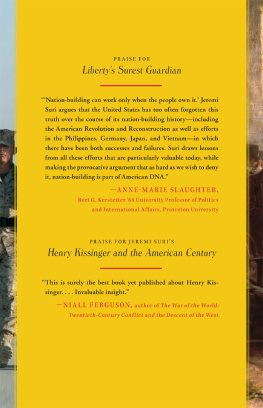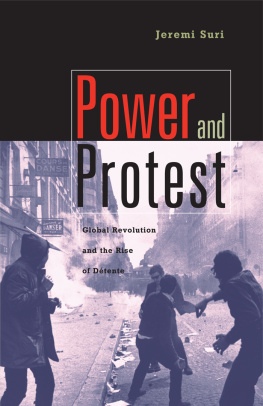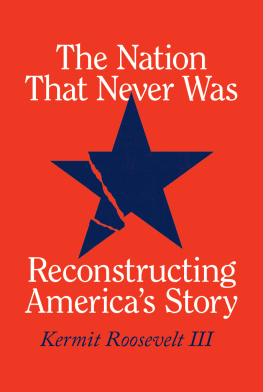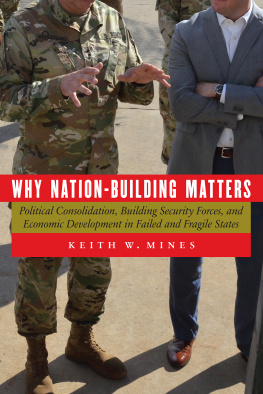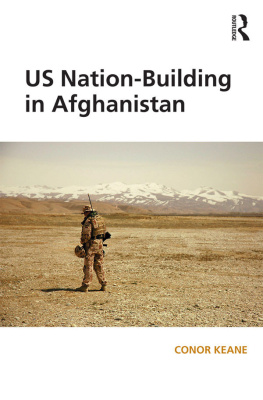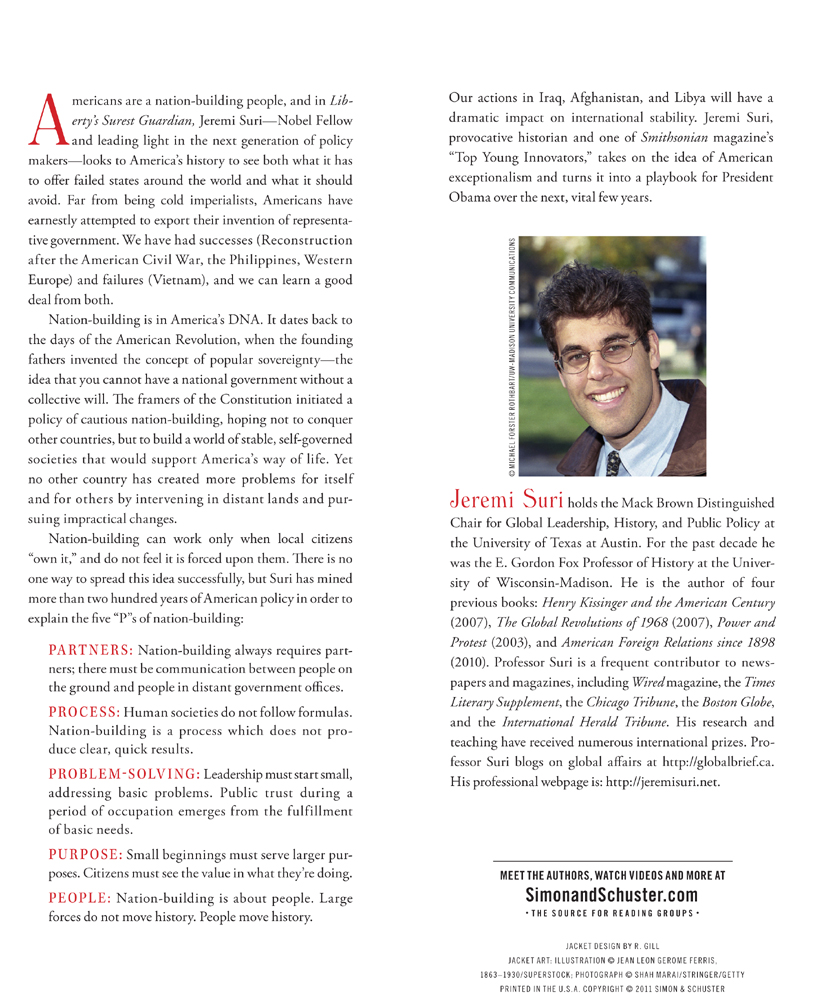
Thank you for purchasing this Simon & Schuster eBook.
Sign up for our newsletter and receive special offers, access to bonus content, and info on the latest new releases and other great eBooks from Free Press.

or visit us online to sign up at
eBookNews.SimonandSchuster.com

Also by Jeremi Suri
Henry Kissinger and the American Century
Power and Protest
The Global Revolutions of1968
American Foreign Relations Since 1898
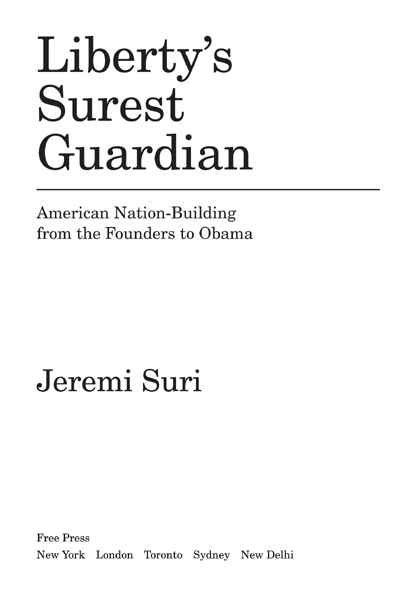

Free Press
A Division of Simon & Schuster, Inc.
1230 Avenue of the Americas
New York, NY 10020
www.SimonandSchuster.com
Copyright 2011 by Jeremi Suri. Maps produced under the direction of Jeremi Suri with assistance from Debbie Sharnak and Tanya Buckingham.
All rights reserved, including the right to reproduce this book or portions thereof in any form whatsoever. For information address Free Press Subsidiary Rights Department, 1230 Avenue of the Americas, New York, NY 10020.
First Free Press hardcover edition September 2011
FREE PRESS and colophon are trademarks of Simon & Schuster, Inc.
The Simon & Schuster Speakers Bureau can bring authors to your live event. For more information or to book an event contact the Simon & Schuster Speakers Bureau at 1-866-248-3049 or visit our website at www.simonspeakers.com.
Designed by Carla Jayne Jones
Manufactured in the United States of America
10 9 8 7 6 5 4 3 2 1
Library of Congress Cataloging-in-Publication Data
Suri, Jeremi.
Libertys surest guardian : American nation-building from the founders to Obama / Jeremi Suri. p. cm.
1. United States. President (2009-: Obama) 2. Nation-buildingUnited StatesHistory. I. Title.
JZ6300.S87 2011
973dc22
2010051296
ISBN 978-1-4391-1912-9
ISBN 978-1-4391-4170-0 (ebook)
To Alison, Natalie, and Zacharymy favorite nation-builders
Contents
Introduction
Chapter 1
The American Nation-Building Creed
Chapter 2
Reconstruction After Civil War
Chapter 3
Reconstruction After Empire
Chapter 4
Reconstruction After Fascism
Chapter 5
Reconstruction After Communist Revolution
Chapter 6
Reconstruction After September 11
Conclusion
The Future of Nation-Building
Acknowledgments
Introduction
To the efficacy and permanency of your Union, a government for the whole is indispensable.... Liberty itself will find in such a government, with powers properly distributed and adjusted, its surest guardian.
George Washington, 1796
Our values are not simply words written into parchmentthey are a creed that calls us together, and that has carried us through the darkest of storms as one nation, as one people.
Barack Obama, 2009
W hen George Washington wrote of an American Union with a government for the whole, his vision was radical, perhaps foolhardy. Such a thing had never existed among a diverse people, across a vast continent, with no established royal or military authority. The Union of politically empowered citizens that Washington described was an aspiration more than a reality. It was a dream after two difficult decades of revolution, war, and reconstruction.
Washingtons vision was prophetic. He was ahead of his times. His contemporaries, especially in Europe, expected tyranny, anarchy, or the return of foreign empire in North America after the British defeat. Eighteenth-century thinkers had few models of a good government with powers properly distributed and adjusted. They had even fewer models of a strong government that became a guardian rather than an oppressor of liberty.
Two hundred years after Washington, American exceptionalism became the normal expectation for citizens. The United States proved that large, diverse, and united societiesnationscould achieve more than their fragmented counterparts. The United States also showed that the first presidents claims about the virtues of a representative government were well founded. A powerful government of the people did more for the people, and it was generally more stable than its predecessors. The American model stood out for its unity and its representativeness. Although many Americansincluding women, African Americans, and othersdid not initially have full rights of citizenship, the society they inhabited encouraged more popular participation in politics than any late-eighteenth- or nineteenth-century counterpart. Politics was part of the nations common culture. The state birthed from rallies, debates, and conflicts claimed legitimacy from its roots in the street, not the gentlemans club.
By the twentieth century virtually all governments organized themselves as nation-states. Dominant state institutions claimed legitimacy because they spoke for the peoplenot divine authority or a borderless ethnicityin a particular place. Modern political power was nation-state power. National populations claimed particular rights and privileges because they were constituted in a single state.
Political power centered on territory, institutions of control, and repertoires of consentall symbolized by the flags and passports distributed to mark simultaneous identity and authority. The unbound merchant traveler of an earlier age became the Chinese citizen regulated by the Chinese government, or the German citizen protected by both the German and European Union governments. When entering the borders of another nation-state, one must show ones passport to prove that one is a bona fide part of the larger nation-state system, with clearly defined loyalty and responsibility. If you do not have a nation and a state, then you have neither a homeland nor a right to travel safely beyond. If you do not have a nation and a state, you do not count in the modern world.
The antiterrorist measures implemented across the globe since 11 September 2001 to control the free movement of peoples, weapons, and products have reinforced this nation-state system. Borders are rigidly policed by states. People are closely categorized by nationality. National security takes precedence over all other claims. Nongovernmental organizations (like Amnesty International) and intergovernmental institutions (like the United Nations) continue to exert important influence, but they are tightly tied to nation-states for their resources, recruitment, and leverage over policy. International advocates of human rights, environmental protection, and religious freedom are most effective when they work within and between nation-states, not as alternatives to nation-states. The same is true for multinational corporations. Although they operate globally, they remain regulated by nation-state laws and organizations composed of nation-states, especially the World Trade Organization. The world of the early twenty-first century is a world dominated by political Unions that resemble Washingtons farsighted conceptualization. He would be surprised only at their uniformity and their near universal spread.
That is, of course, the deeper meaning of pluralism: unity in diversity. It was the foundation for Woodrow Wilsons famousper-haps infamouscall for a League of Nations. Franklin Roosevelt followed with plans for a United Nations. His successors have furthered this process through the creation of the North Atlantic Treaty Organization, the European Union, the World Trade Organization, and other international bodies that define power around nation-statesnot races, religions, or other markers of identity. American pluralism is the pluralism of nation-states. Modern globalization is the globalization of nation-states too.
Next page
